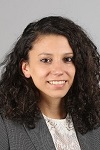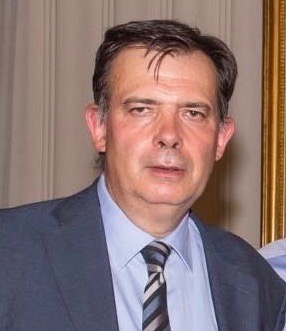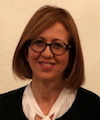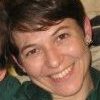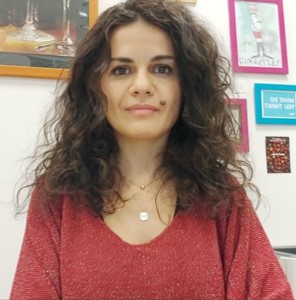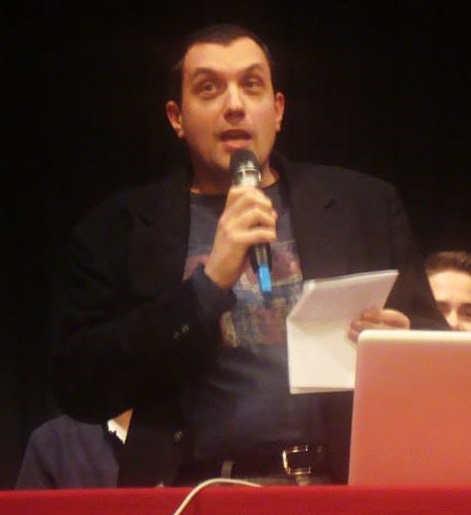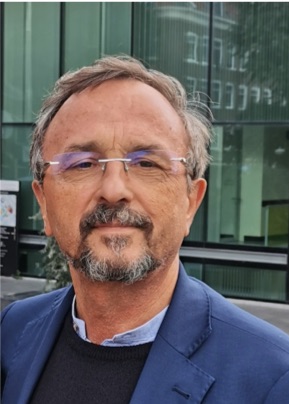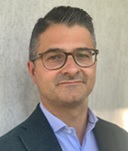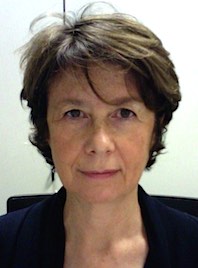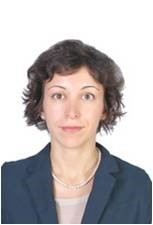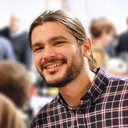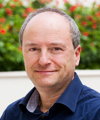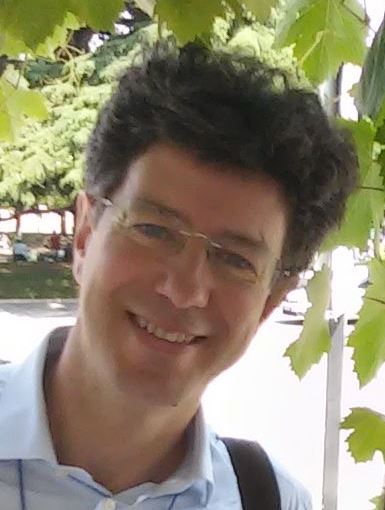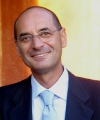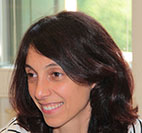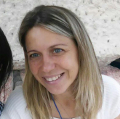Studying at the University of Verona
Here you can find information on the organisational aspects of the Programme, lecture timetables, learning activities and useful contact details for your time at the University, from enrolment to graduation.
Academic calendar
The academic calendar shows the deadlines and scheduled events that are relevant to students, teaching and technical-administrative staff of the University. Public holidays and University closures are also indicated. The academic year normally begins on 1 October each year and ends on 30 September of the following year.
Course calendar
The Academic Calendar sets out the degree programme lecture and exam timetables, as well as the relevant university closure dates..
| Period | From | To |
|---|---|---|
| I sem. | Oct 3, 2016 | Jan 31, 2017 |
| I sem.- 3° anno | Nov 2, 2016 | Jan 31, 2017 |
| II sem. | Mar 1, 2017 | Jun 9, 2017 |
| Session | From | To |
|---|---|---|
| Sessione invernale Appelli d'esame | Feb 1, 2017 | Feb 28, 2017 |
| Sessione estiva Appelli d'esame | Jun 12, 2017 | Jul 31, 2017 |
| Sessione autunnale Appelli d'esame | Sep 1, 2017 | Sep 29, 2017 |
| Session | From | To |
|---|---|---|
| Sessione estiva Appelli di Laurea | Jul 21, 2017 | Jul 21, 2017 |
| Sessione autunnale Appelli di laurea | Nov 24, 2017 | Nov 24, 2017 |
| Sessione invernale Appelli di laurea | Mar 23, 2018 | Mar 23, 2018 |
| Period | From | To |
|---|---|---|
| Festa di Ognissanti | Nov 1, 2016 | Nov 1, 2016 |
| Festa dell'Immacolata Concezione | Dec 8, 2016 | Dec 8, 2016 |
| Vacanze di Natale | Dec 23, 2016 | Jan 8, 2017 |
| Vacanze di Pasqua | Apr 14, 2017 | Apr 18, 2017 |
| Anniversario della Liberazione | Apr 25, 2017 | Apr 25, 2017 |
| Festa del Lavoro | May 1, 2017 | May 1, 2017 |
| Festa della Repubblica | Jun 2, 2017 | Jun 2, 2017 |
| Vacanze estive | Aug 8, 2017 | Aug 20, 2017 |
Exam calendar
Exam dates and rounds are managed by the relevant Science and Engineering Teaching and Student Services Unit.
To view all the exam sessions available, please use the Exam dashboard on ESSE3.
If you forgot your login details or have problems logging in, please contact the relevant IT HelpDesk, or check the login details recovery web page.
Should you have any doubts or questions, please check the Enrollment FAQs
Academic staff
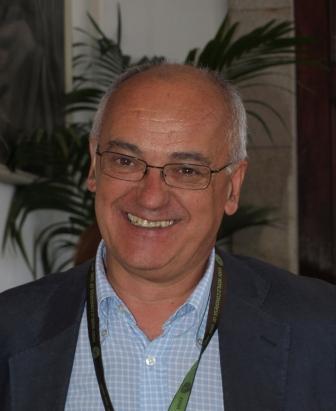
Boselli Maurizio
 maurizio.boselli@univr.it
maurizio.boselli@univr.it
 3478344185
3478344185
 malear@alice.it
malear@alice.it
 lorenzo.meneghini@univr.it
lorenzo.meneghini@univr.it
Sandri Marco
 marco.sandri@univr.it
marco.sandri@univr.it
 lorenzo.tonina@univr.it
lorenzo.tonina@univr.it
Study Plan
The Study Plan includes all modules, teaching and learning activities that each student will need to undertake during their time at the University.
Please select your Study Plan based on your enrollment year.
1° Year
| Modules | Credits | TAF | SSD |
|---|
2° Year activated in the A.Y. 2017/2018
| Modules | Credits | TAF | SSD |
|---|
3° Year activated in the A.Y. 2018/2019
| Modules | Credits | TAF | SSD |
|---|
| Modules | Credits | TAF | SSD |
|---|
| Modules | Credits | TAF | SSD |
|---|
| Modules | Credits | TAF | SSD |
|---|
Legend | Type of training activity (TTA)
TAF (Type of Educational Activity) All courses and activities are classified into different types of educational activities, indicated by a letter.
Viticultural practices (2018/2019)
Teaching code
4S02040
Credits
6
Language
Italian
Scientific Disciplinary Sector (SSD)
AGR/03 - ARBORICULTURE AND FRUITCULTURE
The teaching is organized as follows:
Teoria
Credits
4
Period
II semestre
Academic staff
Maurizio Boselli
Esercitazioni
Credits
2
Period
II semestre
Academic staff
Maurizio Boselli
Learning outcomes
------------------------
MM: Teoria
------------------------
The course presents the different growing techniques in viticulture, examines the problems and effects on productivity and quality. In particular, the course examines how plant the vineyard, the different forms of vine training and pruning systems, techniques of soil management of vineyards, the techniques of irrigation, the mineral nutrition of the grapevine, particular reference to the systems of fertilization to soil and foliar, the canopy management and the harvest methods.
------------------------
MM: Esercitazioni
------------------------
The course aims to provide students with practical knowledge of viticulture through vineyard's visits.
Program
------------------------
MM: Teoria
------------------------
Lectures (4 CFU). The course of viticulture practices provides a part of lectures in which are discussed the various issues that concern the operational choices and procedures for the execution of the agronomic techniques in the vineyard. The course initially presents ways to develop a sustainable viticulture. It considers how to implant the vineyard. In fact the design and subsequent plant operations are of crucial importance for the success of a vineyard in time and to do this we must start from the choice of the site that provides a perfect knowledge of the ecological factors taken into consideration by evaluating the characteristics of the land, upon the position, exposure and slope, depth, texture and soil structure, in addition to the chemical composition. These concepts follows the treatment of soil preparation: leveling and excavation; burglary; refinement of the terrain. The discussion follows with a description of the systems drained and fertilizing bottom preimplantation. Also presented are the various provisions of the rows (rittochino, cavalcapoggio, Girapoggio, variable geometry), because the adoption of certain plant density. These arguments follow those relating to the choice of material for propagation of the vine (variety and rootstocks), methods for plants, materials for the construction of the vineyard. Other topics covered during the course are pruning (agronomic and physiological foundations), the concepts of minimal pruning and crotchet, the forms of vine training (Gobelet, Guyot, Cordon, Sylvoz, Casarsa, free cordon, cordon free mobilized, Pergolas, System rays or Bellussi, Parrales, GDC, Lyra). The course continues with a discussion of how soil management (machining, chemical weed control, controlled grassing), presents methods for practicing the irrigation of vineyards and fertilization. Then goes on to deal with the microclimate of the vineyard induced by different types of curtain of leaves, interventions to green during the growing season of the vine (flaking, suckering, topping, bunch thinning). The course ends with the presentation of the harvest mode according to the type of grape maturation reached (technological, phenolic, aromatic, etc.). Teaching material: notes provided by the teacher at the beginning of the course and reference books.
------------------------
MM: Esercitazioni
------------------------
Tutorial (2CFU). The course aims to provide practical knowledge of viticulture. During the practical exercises, mainly in external vineyards in Veneto and other regions, students will learn how to plant the vineyard, the materials used, how to grow the vine, how to manage the canopy by participating directly in the operations planned with the farm managers, will learn how to manage the soil of the vineyard.
Bibliography
| Activity | Author | Title | Publishing house | Year | ISBN | Notes |
|---|---|---|---|---|---|---|
| Teoria | Boselli M. | Progressi in viticoltura (Edizione 1) | EdiSES | 2016 | 978-88-7959-906-1 | |
| Teoria | Fregoni M. | Viticoltura di qualità (Edizione 3) | Tecniche nuove | 2013 | 978-88-481-2919-0 | |
| Esercitazioni | Iland P., Dry P., Proffitt T., Tyerman S. | The Grapevine. From the Science to the Practice of growing vines for wine. (Edizione 1) | Patrick Iland Wine Promotion Pty Ltd. Ed. Adelaide, Australia | 2011 | 9780958160551 |
Examination Methods
------------------------
MM: Teoria
------------------------
Final exam is oral for both students attending and non-attending and aims to verify the knowledge of the subjects analyzed during the course. The oral examination will focus on the topics covered in the lesson (available in the teaching materials distributed and in the reference texts). The teacher will ask at least three questions and the student will be assessed on the basis of: (i) knowledge and in-depth study of the topics dealt with; (ii) exhibition capacity; (iii) correctness of technical-scientific language. The oral test may have a maximum score of 30 points, possibly with honors. Training gaps will lead to an insufficient grade
------------------------
MM: Esercitazioni
------------------------
For the examination method, please refer to the instructions for the lessons.
Type D and Type F activities
Modules not yet included
Career prospects
Module/Programme news
News for students
There you will find information, resources and services useful during your time at the University (Student’s exam record, your study plan on ESSE3, Distance Learning courses, university email account, office forms, administrative procedures, etc.). You can log into MyUnivr with your GIA login details: only in this way will you be able to receive notification of all the notices from your teachers and your secretariat via email and soon also via the Univr app.
Graduation
Attendance
As stated in the Teaching Regulations for the A.Y. 2022/2023, attendance is mandatory for practical and laboratory activities, unless otherwise determined by the Teaching Committee.
Documents
| Title | Info File |
|---|---|
|
|
pdf, it, 121 KB, 18/10/23 |
